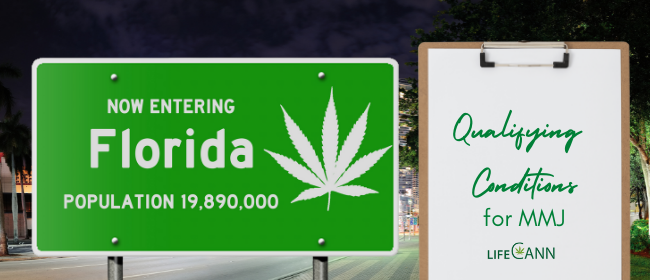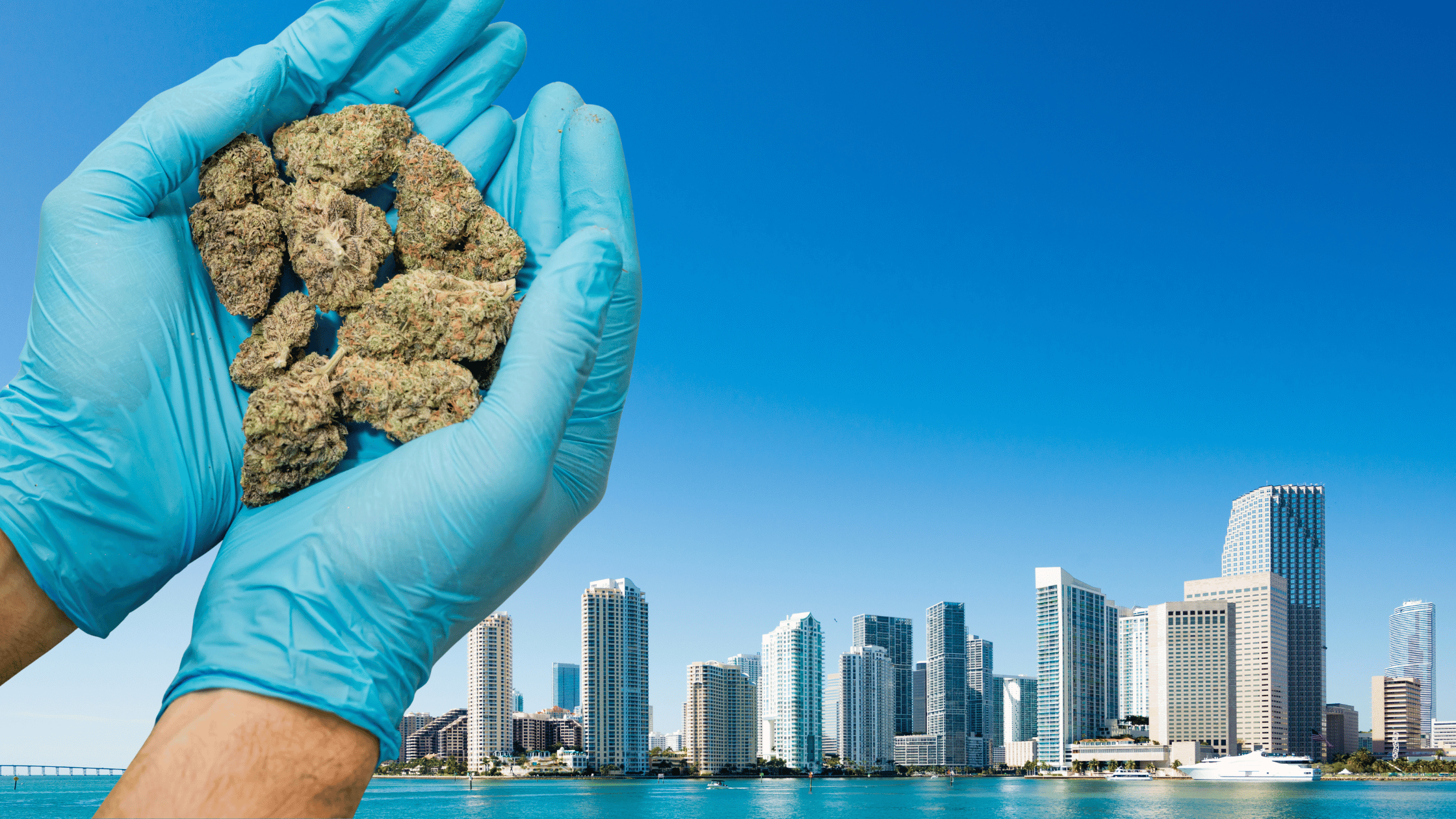
On January 3, 2017, Amendment 2 came into effect in Florida allowing for the legal medicinal use of cannabis. The rules for use and administration are outlined in Senate Bill 8A of The Florida Medical Marijuana Legalization Initiative which allows for treatment of “diagnosable, debilitating conditions.” This allowed patients with debilitating medical conditions to be able to buy and use Medical Marijuana.
Medical Marijuana laws in Florida are designed with the patient’s health in mind. The following is a list of the “official” medical conditions that are included within Florida’s legal guidelines.
Cancer
Patients with Cancer use Medical Marijuana to help with reduced nausea, and as an aid to increase appetite, and in some small studies, MMJ has been shown to reduce cancer cells. The Delta 9 in MMj can relieve pain and nausea, reduce inflammation, and act as an antioxidant. Additionally, cannabidiol (CBD) can help treat seizures, while also reducing anxiety. More recently, scientists reported that the use of MMJ may slow growth and/or cause death in certain types of cancer cells growing in vitro. Learn more here.
Epilepsy
Years of research have shown that MMJ can help patients who experience epileptic seizures. The US Food and Drug Administration (FDA) actually approved the first CBD medication for seizure treatment in 2018. With MMJ, both THC and CBD bind to receptors in the brain. These signaling systems within the brain may control seizures. MMU may also provide protective and anti-inflammatory properties. Learn more here.
Glaucoma
This complex eye condition affects and damages the optic nerve. Over time, Glaucoma can reduce peripheral vision and even lead to blindness. It does this by causing elevated pressure within the eye – known as intraocular pressure (IOP).Several studies have shown that marijuana may reduce IOP.
HIV/AIDS
For many years, even before legalization, the HIV community believed that cannabis consumption offset the effects of muscle soreness, nausea, loss of appetite, and other symptoms that often come with both AIDS and HIV – many of the medications used to treat the condition result in these side effects. Learn more here:
Crohn’s Disease
This is a type of inflammatory bowel disease that causes inflammation of the digestive tract. This can cause abdominal pain, diarrhea, fatigue, weight loss, and malnutrition.
Studies have shown that smoking marijuana may improve symptoms – including pain, nausea, and decreased appetite. THC is most known for its effects in alleviating nausea and chronic pain and improving appetite. CBD also has anti-inflammatory or immune properties.
Parkinson’s Disease
This disease is a brain disorder that leads to tremors, stiffness, and difficulty with balance, and coordination – including walking. A recent study found that patients experienced relief of certain motor and nonmotor symptoms from using MMJ. Pain was also reduced by 43.9% and muscle cramps by 41.4% Other motor symptoms like akinesia and freezing, and restless leg syndrome, were reported to be relieved by MMJ. Learn more here.
Amyotrophic Lateral Sclerosis (ALS)
This is a progressive nervous system disease that affects the nerve cells in both the brain and spinal cord. This results, over time, in loss of muscle control. Symptoms include muscle spasticity. Research has shown that MMJ can help with muscle spasticity. Cannabis also has properties to help manage “analgesia, muscle relaxation, bronchodilation, saliva reduction, appetite stimulation, and sleep induction.”
Multiple Sclerosis (MS)
This chronic disease also affects the central nervous system – both the brain and spinal cord. With MS, the immune system attacks nerve fibers and the myelin sheathing that surrounds/insulates nerve fibers. More than 40% of MS patients say they have used cannabis products. MMJ aids with chronic pain and sleep and can help relieve muscle stiffness (spasticity) and spasms. Learn more here.
Chronic nonmalignant pain
There are many causes of chronic pain. However, patients who suffer from it who have used medical marijuana saw a reduction in their pain levels. Usually, more balanced products provide optimized levels of both CBD and THC for medicinal use, based on the fact that higher doses of CBD are often needed for relief. MMJ has been studied and the results show success in managing pain from inflammation, arthritis, and Neuropathic pain. Importantly, the use of MMJ is a substitute for habit-forming and addictive pain medication such as opioids. Learn more here.
Post-Traumatic Stress Disorder (PTSD)
This disorder happens to patients who have difficulty recovering after experiencing or witnessing a terrifying and/or traumatic event. The condition may last months or years, and triggers bring back memories causing mental and physical reactions such as nightmares, heightened reactions, anxiety, or depression. MMJ may help with the symptoms by influencing the body’s endocannabinoid system – which plays an essential role in maintaining homeostasis. A recent study showed a decrease in PTSD symptoms. Patients saw a 75% reduction in PTSD symptoms when using cannabinoids.
Most notably, also on the list of qualifying conditions is – and according to the following verbiage in the amendment – “Any ailment/condition “of the same severity/symptoms” as well as “Any terminal condition diagnosed by a doctor other than the issuing physician.”
It is illegal for a physician to certify a Florida resident without a qualifying diagnosis. Therefore the initial consultation is vital. Additionally, qualifying individuals must be recertified at least once every 30 weeks – around 7 months.
Once a patient is deemed as qualifying for an MMJ card, the physician will enter their information into the Florida Medical Marijuana Registry.
As a certified cannabis doctor, Dr. Fandino-Sende is uniquely qualified to make professional recommendations enabling the receipt of a medical marijuana card from the state of Florida. In three easy steps, Florida patients can obtain their Medical Marijuana cards from LifeCannMD and Dr. Fernando Fandino-Sende.
Once a patient has contacted LifeCannMD at (833) 543-3226 or online at www.lifecannmd.com, the team will listen to the patient’s circumstance during the initial no-risk, no-commitment consultation.
If the individual is recognized as a qualifying candidate, the next step is getting the official medical recommendation from Dr. Sende, himself. Dr. Sende’s top-rated medical marijuana referral clinic has served over 5,000 satisfied patients offering wellness and relief from their qualifying conditions.
For more information, please visit www.lifecannmd.com, email monika@lifecannmd.com or call (833) 543-3226.


